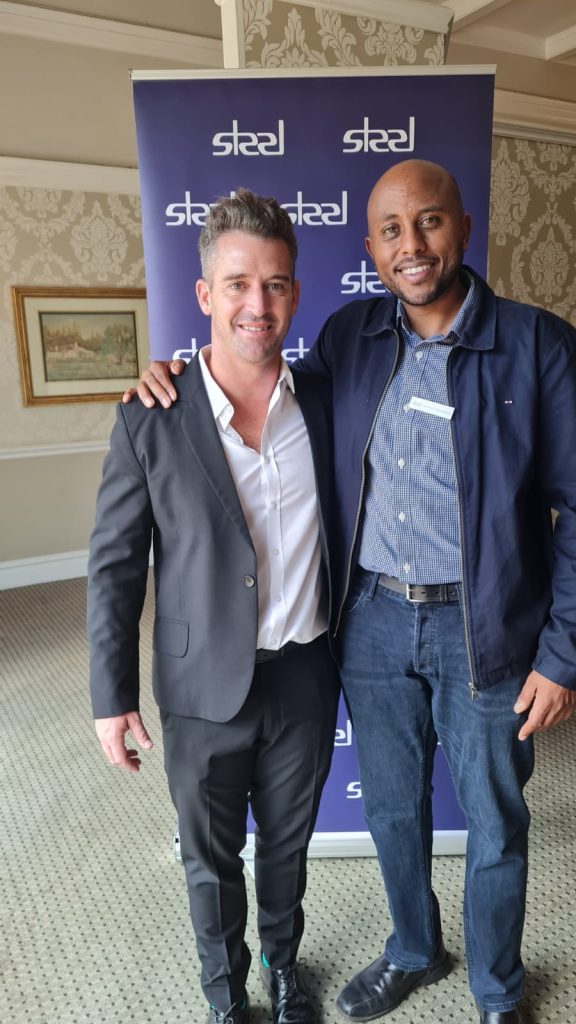
Wider training across the entire steel value chain in South Africa, engagement and greater collaboration among sector representatives, can play a role in alleviating issues across the spectrum, including that of the availability of steel. This is the first part of a two-part article.
This was one of the themes of a recent industry breakfast networking session held in Johannesburg by the Southern African Institute of Steel Construction (SAISC). This was the first such breakfast event since the global Covid-19 pandemic.
The aim of the SAISC is to act as the custodian of the welfare of the steel value chain, promoting its usage and capabilities in the construction, manufacturing, mining and many other sectors; and to proactively promote the use of steel in current construction projects.
The importance of industry-wide discussion and communication
“We were enormously pleased to host this event and invite members across the steel sector to join the discussion, which included topics such as how we can all work together to sustain a stronger, greener and more effective local steel industry,” explains Amanuel Gebremeskel, the SAISC’s Chief Executive Officer (CEO).
“As the Institute, we have always taken pride in facilitating industry networking forums to promote greater communication, understanding, unity and diversity across the steel sector, thereby collaborating to solve common challenges and issues. One of the current major challenges, of course, is the availability of steel in South Africa, which is in fact not only a local but also a global issue.”

Members of the SAISC in attendance represented the entire spectrum of the steel value chain: steel mills, merchants, service centres, fabricators, contractors, architects and consulting engineers.
Gebremeskel opened his presentation with a brief overview of some of the challenges within the industry as they applied to specific sectors, before opening the floor to general discussion. He was joined by Adam Oldfield, Director and Structural Engineer: Cousins Steel International, who – as a new Board member of the Institute – gave his viewpoint on various aspects throughout the discussion from the perspective of being both a qualified professional, as well as a steel construction design expert.
The critical importance of innovative research, training and ‘new thinking’
Gebremeskel highlights the importance of ongoing research and innovative ‘new thinking’ with a brief overview of new research from the United Kingdom’s University of Birmingham which offers the potential to reduce steelmaking carbon emissions by 90 percent, through devising a so-called ‘closed loop’ carbon recycling system as an adaptation for existing blast furnaces.
More news
- CELEBRATING EXCELLENCE IN THE RESIDENTIAL PROPERTY SECTOR
- PART 4: GIBS PANEL DISCUSSES INTEMEDIATE CITIES ROLE IN AFRICA’S DEVELOPMENT
- EXPOSED AGGREGATE PAVERS COMPLEMENT NEW LIFESTYLE CENTRE
- GIBS PANEL EXPLORES ROLE OF INTERMEDIATE CITIES IN SA’S DEVELOPMENT PART 3
- CITI-CON’S CONCRETE KNOWLEDGE SUCCESSFULLY DEPLOYED ON NEW LANDMARK DEVELOPMENT

